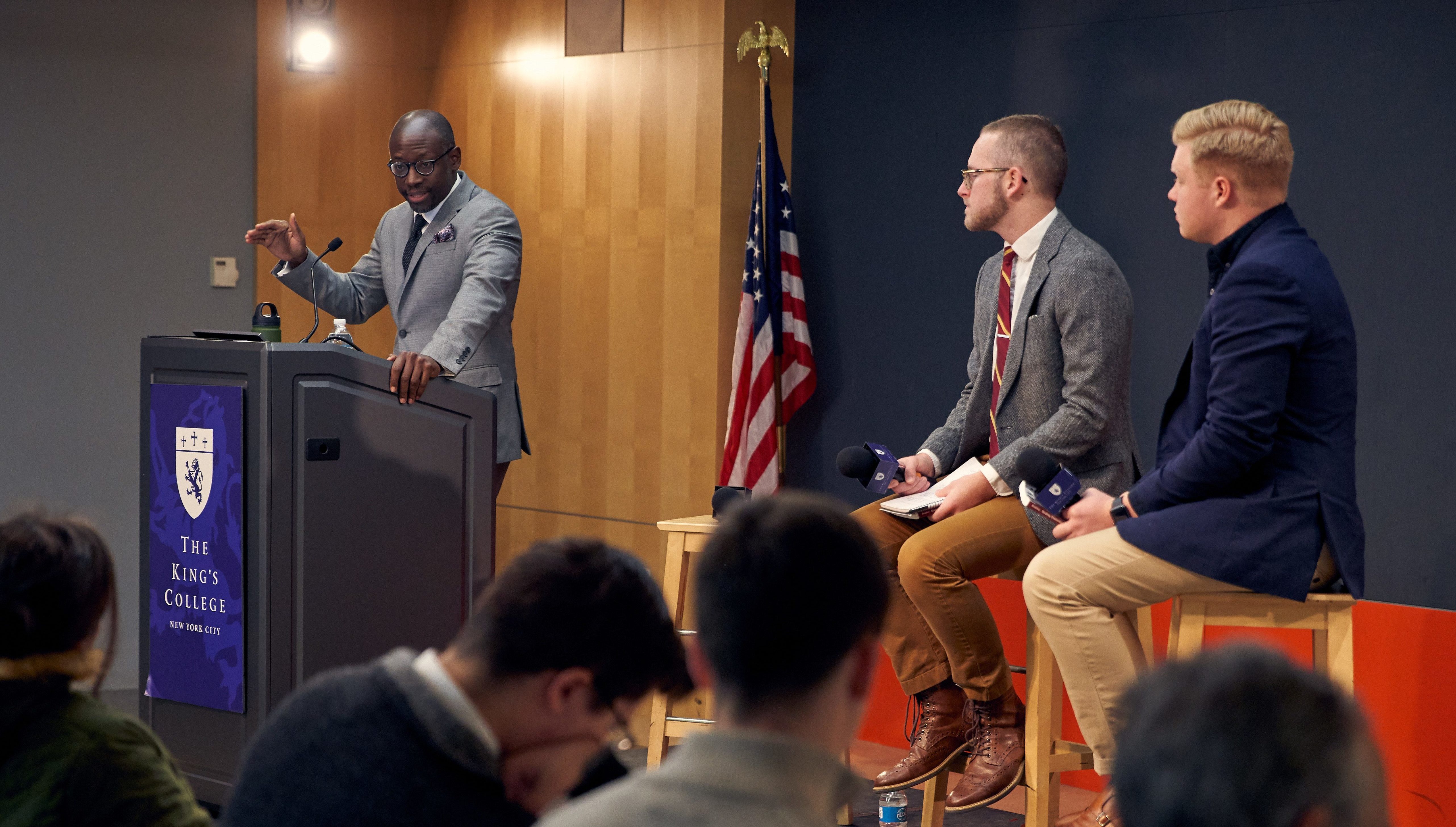Dr. Anthony Bradley Hosts Panel Discussion on ‘Ending Overcriminalization and Mass Incarceration: Hope from Civil Society’
Bradley’s “hope from civil society” is that ordinary people—churches, families, and grassroots organizations—can help alleviate the injustices of the criminal justice system.

On October 26, The King’s College welcomed Dr. Anthony Bradley, chair of the program in Religious and Theological Studies and director of the Center for the Study of Human Flourishing to discuss his latest book, Ending Overcriminalization and Mass Incarceration: Hope from Civil Society. Bradley was joined by two alumni panelists and principal researchers for the book, Matt Sifert (PPE ’16) and Taylor Thompson (PPE ’17). The book is, in part, a product of Bradley’s work as director of the Galsworthy Criminal Justice Reform Program, which awards annual fellowships to visiting faculty members in order to promote cross-disciplinary academic work on overcriminalization, mass incarceration, and criminal justice reform.
Bradley argues that recent scholarship has tended to reduce the issue of the mass incarceration of African Americans to a single cause, such as federal drug legislation or privatized prisons. However, Bradley’s multivariate analysis indicates that drug offenses only account for a small percentage of prison growth, and privatized prisons are confined to a few states. A more crucial and overlooked variable is the role of criminal prosecutors.
“It’s important to get the story straight and to get the narrative right so that we can have the right kinds of solutions,” said Bradley.
Sifert explained that prosecutors have a perverse career incentive to incarcerate as many people as possible. Their strategy is to target lower-income neighborhoods which are often predominantly inhabited by African Americans in order to make arrests. Prosecutors then stack charges against the accused, because “throwing the book” at defendants can force them to accept a plea deal. Prosecutors who maximize their convictions in this way will have a better chance at promotion or advancement in their own careers.
Bradley believes it is important to understand why some people are arrested while others walk free. Since federal law is meticulous and comprehensive, almost anyone could be charged with a crime on a technicality. For instance, it is a federal crime to print a label for turkey ham with the words “turkey” and “ham” in different fonts. However, the vast majority of those who will actually be incarcerated are those who lack the funds to hire a defense attorney or make bail. Thus, poverty is the deciding factor in the criminal justice system, especially for people of color or those living in urban environments. For Bradley, this shows that our criminal justice system fails to meet the biblical moral standard of caring for the poor and disadvantaged.
Bradley’s “hope from civil society” is that ordinary people can help alleviate the injustices of the criminal justice system. Churches, families, and grassroots organizations can provide support for those who would otherwise be relegated to the criminal justice system, while respecting the God-given dignity of each person. Bradley explained that simple human touch via a daily massage has been shown to alleviate aggression in children and young adults, who might otherwise have no healthy outlet for their emotions. Ultimately, Bradley’s proposed solutions echo Christ’s exhortation to love one’s neighbor, especially the poor.
Ending Overcriminalization and Mass Incarceration: Hope from Civil Society is available for purchase through Amazon.




